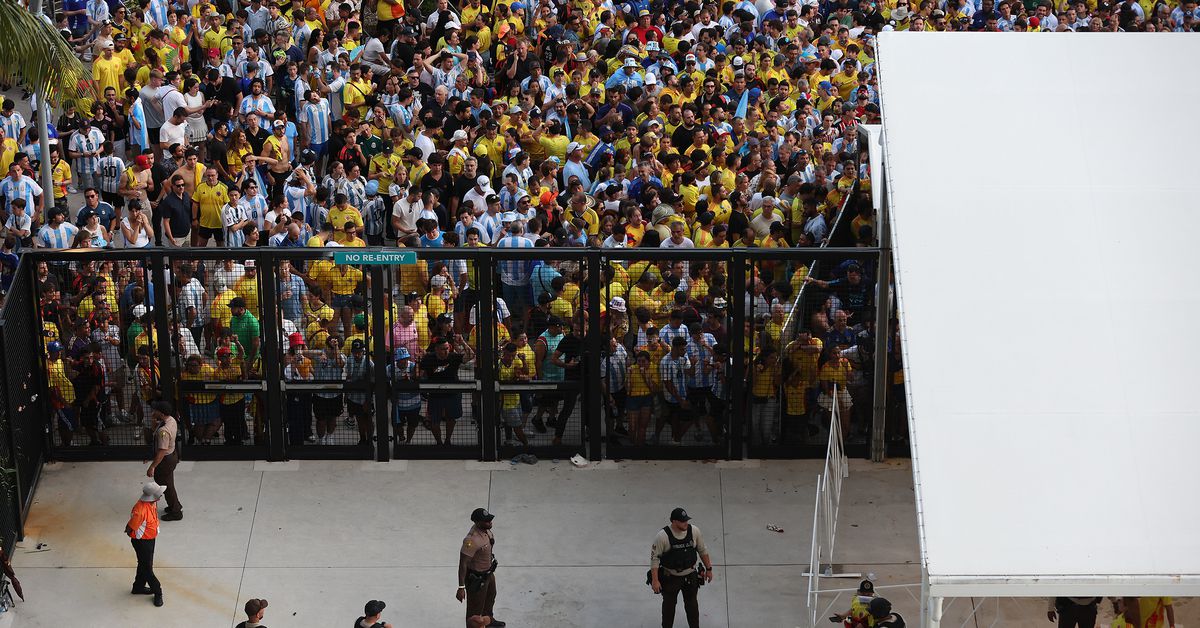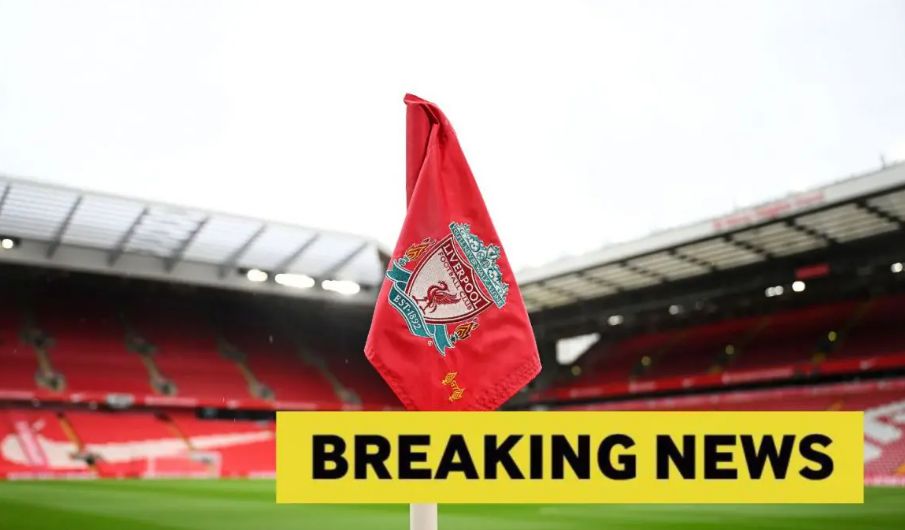[ad_1]
The 2026 World Cup is less than two years away, and the excitement for the tournament, already at high levels, will only increase as the time inches closer to the opening kickoff. However, after the security issues that were on display at the 2024 Copa America final at Hard Rock Stadium in Miami on July 14th, fans around the world are left wondering if the United States is ready to co-host what could be the biggest sporting event the world has ever seen.
Thousands of fans broke through the gates ahead of the match between Argentina and Colombia to enter Hard Rock Stadium, with some hopping tall fences and even attempting to enter via the stadium’s ventilation system. The chaos led an estimated 7,000 people to enter the stadium without tickets to the match, and many others with legitimate tickets were shut out due to overcrowding, despite paying thousands of dollars for the opportunity to see their teams.
While some rightly blamed CONMEBOL for its planning and organization of the tournament, a significant portion of the criticism fell on the United States since the Copa América was played there. This incident has led to concerns about the country’s ability to host the upcoming 2026 World Cup.
Although the security issues at the Copa América final were not directly the fault of U.S. Soccer, Concacaf, or the 2026 World Cup committee, the perception is now a reality that the United States needs to address. It must learn from these mistakes and reassure the global audience that it is prepared to host a safe and organized 2026 World Cup.
Many soccer analysts question why CONMEBOL did not follow the security procedures recommended by the 2026 World Cup committee and FIFA. The Copa América was meant to serve as a test run for the 2026 World Cup, highlighting any security vulnerabilities that needed to be addressed. However, the lack of coordination between different organizing bodies hindered this process.
The 2026 World Cup bid book outlined stringent security measures for each venue, including extended security perimeters, multiple security checkpoints, and assigned entrance points for ticket holders. These measures aim to ensure safety, prevent overcrowding, and facilitate smooth entry and exit for fans.
Stadiums like Hard Rock Stadium, MetLife Stadium, AT&T Stadium, and Lumen Field have detailed security plans in place to handle large crowds during the World Cup matches. However, successful implementation of these plans will require cooperation from various stakeholders and the public’s understanding and patience.
As the 2026 World Cup approaches, security remains a top priority to host a successful tournament. The Copa América final served as a wake-up call to address any shortcomings and ensure that all necessary precautions are taken to guarantee a safe and enjoyable experience for players, officials, and fans alike.
[ad_2]



